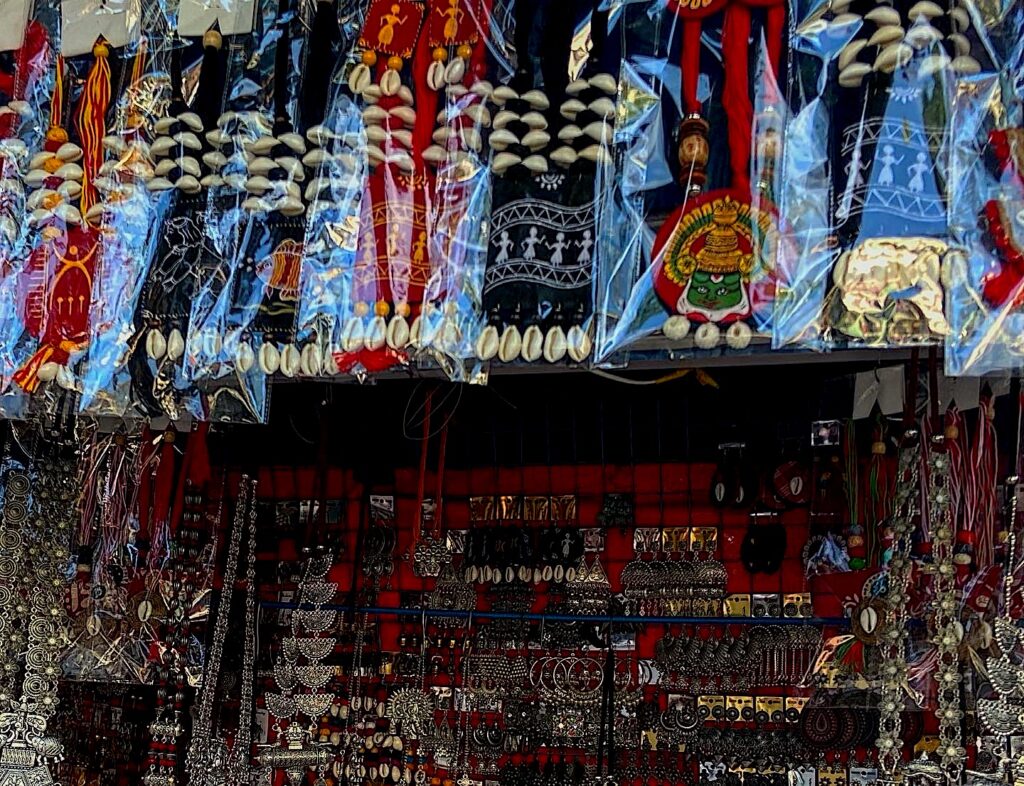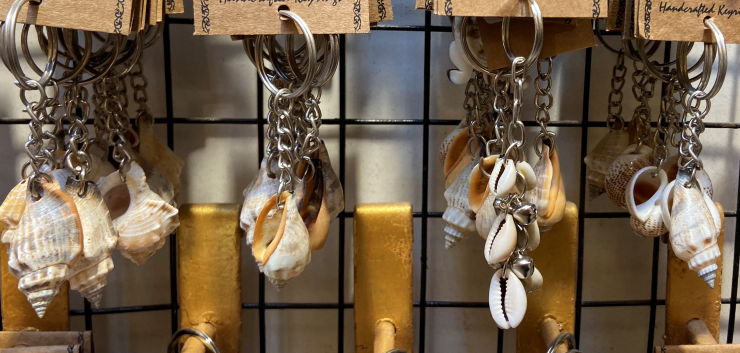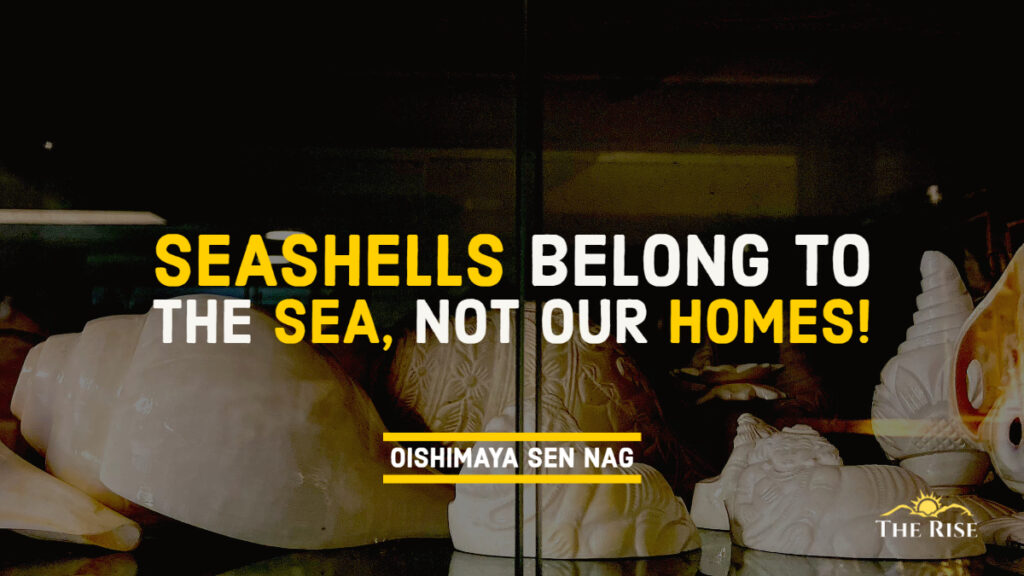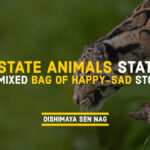While the world is busy trying to save the tigers, lions, sharks, and whales, the marine organisms with seashells are silently vanishing from the sea and filling up our homes. Their absence is creating a void in the oceans that will have a long-lasting impact on every species’ survival in the coming times. Let us leave the seashells where they belong and admire them for the life they harbour and the ocean ecosystem they sustain.
We all love a quick escape to our nearest sea beach destination to pump ourselves with the extra oxygen so needed to sustain our routine lives. While returning, we also often pick “little memories” from the ocean in the form of seashell souvenirs as a reminder of our brief romance with the sun, sands, and sea. Unfortunately, this very act of ours fuels a massive trade that destabilizes marine ecosystems and pushes thousands of animals to a cruel death.
Yes, the seashell items whose beauty acts as a magnet, drawing us to the numerous beach-side shops selling them, once belonged to live animals boiled alive in acid and oil to extract their shells. Removing these animals from the sea also creates a vacuum in the marine ecosystem, depriving other animals of their food. The food chain gets affected, and the overall ecosystem health degrades just to satisfy our lust for seashell souvenirs.

For those of us who never give a second thought to the source of the products we use, here is some information about seashells. In simple words, a seashell is an animal’s outer skeleton or exoskeleton. Many sea animals, especially those belonging to the group molluscs, have a hard shell covering their bodies, usually made of calcium carbonate or chitin. These shells protect these soft-bodied animals from various threats. When these animals die a natural death, these empty shells serve as homes or hiding places for other sea creatures or anchors for sea plants to grow. As nothing in nature goes waste, even broken seashells benefit coastal ecosystems as they help stabilize beaches, provide material to seabirds to build nests, add nutrients to the water, etc.
Many sea animals have a hard shell covering their bodies. Removing these animals from the sea creates a vacuum in the marine ecosystem. The food chain gets affected, and the overall ecosystem health degrades just to satisfy our lust for seashell souvenirs.
Also Read: Local Communities Key To India’s Wildlife Conservation
So, nature has meant seashells for the sea and its various life forms. We have, however, brought them to our homes far away from the sea, leaving a deficiency in the place where they belong. The seashells on beaches that are a delight to discover are usually washed-up shells of dead sea creatures. They also play a role in the coastal ecosystem but are mostly avoided by seashell product manufacturers as they lose their lustre and shape. Instead, thousands of marine organisms are actively harvested from the sea to make such products.

The seashell trade is massive and reliant on the large-scale exploitation of marine organisms. Often commercial-scale fishing leads to the entrapment of vast quantities of non-target animals (called bycatch) like molluscs. Seashell traders then buy these animals to feed the industry. In addition, seashells are actively collected by the deployment of scuba divers, baited cages, or nets that scrape the seabed of its organisms, or workers who collect these animals from shallow waters at low tide. Factories then process these seashells. They are then boiled to kill the animal inside and washed in acid. Any remaining flesh is then scraped off before drying and polishing the shells. The processed seashells are sold to middlemen or directly to artisans to be moulded into the stunning souvenirs we bring home.
In addition, not all of this trade is legal. Often, protected marine species whose low populations are a cause of concern are also killed for their shells. Such illegal trade is fuelled by the lack of knowledge and awareness among the sellers, buyers, and authorities regarding species identification.
The seashell trade is massive and reliant on the large-scale exploitation of marine organisms. Seashells are actively collected by the deployment of scuba divers, baited cages, or nets that scrape the seabed of its organisms
Also Read: Agumbe Rainforest In India: An Enchanted Land Waiting To Be Explored
The “behind the scenes” story of our beautiful seashell curios and jewellery is tainted with pain and misery. So, while the world is busy trying to save the tigers, lions, sharks, and whales, the marine organisms with seashells are silently vanishing from the sea and filling up our homes. Their absence is creating a void in the oceans that will have a long-lasting impact on every species’ survival in the coming times.
Depriving the communities dependent on this trade at one go by banning the trade is not a solution as they need alternative livelihood sources for their survival. However, we, the consumers, must make an informed choice. Our demand for seashell products keeps the industry alive, and we can end it. Hence, let us leave the seashells where they belong and admire them for the life they harbour and the ocean ecosystem they sustain.
Disclaimer: The views expressed in this article are of the author solely. TheRise.co.in neither endorses nor is responsible for them.
About the author
Dr. Oishimaya Sen Nag is a wildlife conservation storyteller and conservation science communicator. She is also the Senior Editor of WorldAtlas. After completing a PhD in Parkinson’s Disease research, she transitioned into the field of wildlife conservation. She travels across India to collect conservation stories and has written scores of articles on wildlife conservation that has been published in various national and international publications.


















